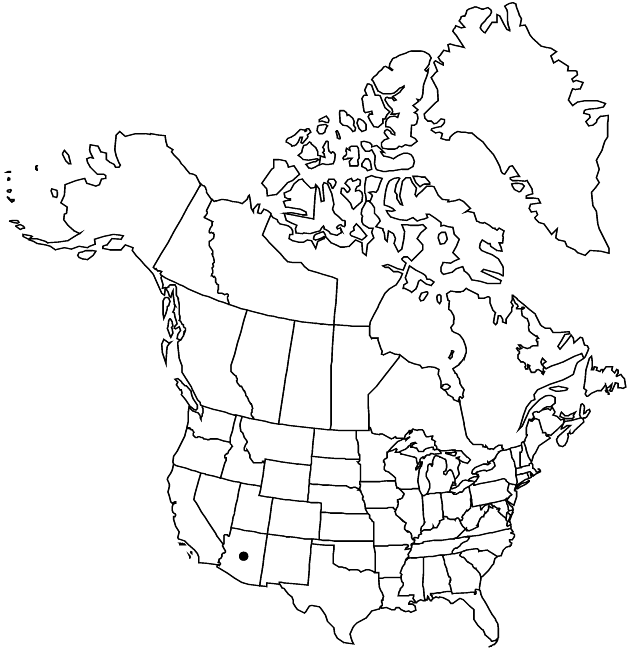Difference between revisions of "Symphyotrichum potosinum"
Phytologia 77: 289. 1995.
FNA>Volume Importer |
FNA>Volume Importer |
||
| Line 11: | Line 11: | ||
|name=Aster potosinus | |name=Aster potosinus | ||
|authority=A. Gray | |authority=A. Gray | ||
| + | |rank=species | ||
|publication_title=Proc. Amer. Acad. Arts | |publication_title=Proc. Amer. Acad. Arts | ||
|publication_place=15: 32. 1880 | |publication_place=15: 32. 1880 | ||
| Line 17: | Line 18: | ||
|name=Aster lemmonii | |name=Aster lemmonii | ||
|authority=A. Gray | |authority=A. Gray | ||
| + | |rank=species | ||
}} | }} | ||
|hierarchy=Asteraceae;Asteraceae tribe Astereae;Symphyotrichum;Symphyotrichum subg. Astropolium;Symphyotrichum potosinum | |hierarchy=Asteraceae;Asteraceae tribe Astereae;Symphyotrichum;Symphyotrichum subg. Astropolium;Symphyotrichum potosinum | ||
| Line 42: | Line 44: | ||
-->{{#Taxon: | -->{{#Taxon: | ||
name=Symphyotrichum potosinum | name=Symphyotrichum potosinum | ||
| − | |||
|authority=(A. Gray) G. L. Nesom | |authority=(A. Gray) G. L. Nesom | ||
|rank=species | |rank=species | ||
| Line 57: | Line 58: | ||
|publication year=1995 | |publication year=1995 | ||
|special status= | |special status= | ||
| − | |source xml=https://jpend@bitbucket.org/aafc-mbb/fna-data-curation.git/src/ | + | |source xml=https://jpend@bitbucket.org/aafc-mbb/fna-data-curation.git/src/eaa6e58056e40c9ef614d8f47aea294977a1a5e9/coarse_grained_fna_xml/V19-20-21/V20_1080.xml |
|tribe=Asteraceae tribe Astereae | |tribe=Asteraceae tribe Astereae | ||
|genus=Symphyotrichum | |genus=Symphyotrichum | ||
Revision as of 19:24, 16 December 2019
Perennials, 15–35(–45) cm, colonial or cespitose; rhizoma-tous. Stems 1–3+, ascending to erect (sometimes purple or purplish brown), glabrous or glabrate, sparsely hairy in leaf axils [villous to sericeous]. Leaves thin, apices callous-pointed, faces glabrous or glabrate; basal usually withering by flowering, long-petiolate, petioles sheathing, sparsely ciliate, blades lanceolate, 40–110 × (3–)5–7 mm, bases attenuate, margins entire to crenulate, rarely with 1–2 teeth, apices obtuse to rounded, callus-pointed; proximalmost cauline sometimes withering by flowering, winged-petiolate or sessile distally, blades lanceolate to linear-lanceolate, 50–120(–180) × 1–6 mm, bases attenuate, margins entire, sparsely ciliate, apices acute; distal sessile, blades subulate to lanceolate, 10–50 × 1–2 mm, bases clasping, apices acuminate. Heads (1–)3–20(–40), in paniculiform arrays, branches patent. Peduncles 1–4(–6) cm, ascending, glabrate, bracts 1–4(–5), subulate to lanceolate, foliaceous. Involucres cylindric to hemispheric, (4.5–)5–7.3 mm. Phyllaries in 2–3(–5) series, subulate to lanceolate, bases indurate, margins hyaline, entire to erose, often ciliate, green zones linear-lanceolate (outer) or rhombic (inner), apices acute, faces glabrous [sparsely villous]. Ray florets 14–27; corollas white, laminae (4.6–)5.6–7(–9.5)–10.3 × 1.3–2 mm. Disc florets 18–35(–42); corollas yellow, 3.5–5 mm, tubes shorter than funnelform throats (hairy), lobes± spreading, triangular, 0.5–0.7 mm. Cypselae light brown to gray, narrowly obovoid to fusiform, sometimes ± compressed, 2–3 mm, 5-nerved, faces glabrate to sparsely strigillose; pappi white to cream, 3.5–5.5 mm. 2n = 10.
Phenology: Flowering (Jun–)Jul–Sep.
Habitat: Moist, muddy, sandy, or rocky soils along streams
Elevation: 1500–1900 m
Discussion
Of conservation concern.
Symphyotrichum potosinum is known from Cochise County, Arizona, south into Mexico to northern Oaxaca.
Selected References
None.
